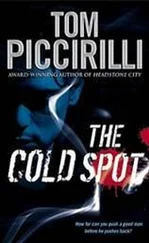'I am truly sorry that I have distressed you,' I answered. 'Neither accusation has any truth in it, and I will await the judgement of Abb Aidan. You have always been kind to me and, whatever happens, I will always remember that fact.'
The finality in my tone must have caught Senesach's attention, for he looked at me closely and said nothing for several seconds. 'I will pray for you,' he said and, after genuflecting to the altar, he turned and strode out of the chapel. I heard the brisk footfalls of his sandals as he marched away, the last memory of the man who had given me the chance of bettering myself. That chance I had taken, but it had led me onto a different path.
NINETEEN

I WAS CERTAIN that the conclave would find me guilty. And, as I had no wish to be left to starve in a pit like my predecessor, that night I gathered together my few belongings - my monk's travelling cloak, a workmanlike knife that Saer Credine had given me, and a sturdy leather travelling pouch that I had made for myself while sitting in Bladnach's workshop. I clasped Colman's hand in farewell, then crept out of our dormitory hut and found my way to the library. I forced the door, and took down the largest of the bible satchels from where it hung on its peg. I knew that it contained a ponderous copy of the Gospel of St Matthew. Sliding the great book out of the case, I took out my knife and with the point I prised out several of the stones which had been inset as decoration into the heavy cover. They were four large rock crystals as large as walnuts, and a red-coloured stone about the size of a pigeon's egg. The stones were of little value in themselves. I just wanted to hurt the monastery in the only way I knew, by stealing something which would cause Abb Aidan a moment of financial pain. I wrapped my booty in a strip of linen rag torn from the Gospel's slip cover, and dropped it into my satchel. Then I made my way to the earth vallum that marked the monastery boundary, and clambered over it, as I had so many times before on my way to meet Orlaith.
In my flight I had one single advantage over the wretched runaway novice who had been starved to death in a pit. He had been caught because he had fled back to his tuath, and Abb Aidan had easily guessed his destination. This was the natural course for any fugitive. Among the native Irish the only place that an ordinary man or woman has any security is on the territory of their own tuath, among their own kinsfolk, or on the land of an allied tuath which has agreed mutual recognition of rights. But such rights are worthless when confronted with the power of an important abb capable of making his own laws and regulations. So the fugitive had been handed over meekly by his own people and led away to his death. But I had no tuath. I was a foreigner. I had neither clan nor family nor home. So while everyone's hand was against me, my lack of roots also meant that the abb and his council would have no idea where to send their people to look for me.
For one stupid moment, as I dropped down on the ground on the outer side of the vallum, I thought that I might make a brief visit to Bladnach's house to say goodbye to Orlaith. But I quickly put the idea out of my mind. It would only make matters worse for her. The monks would surely interrogate her and her family about where I might have gone. It was better that they remained ignorant of any details of my departure, even the hour when I had disappeared. Besides, any time spent visiting Orlaith reduced my chances of getting away cleanly. I had already decided that my best route lay to the west and that meant I had to get across the great river before dawn.
St Ciaran's stands on the east bank, on the flank of the hill where the great road follows the line of the ridge then dips down to the river crossing. Here the monks had built a bridge, famous for its length and design. It stood on massive tree trunks driven deep into the soft mud as pilings, and approached by a long causeway laid across the marshy ground. Stout cross-pieces of timber held the main structure together, and the surface was made of layers of planks interleaved with brushwood and laid with rammed earth. Everyone used the bridge. The river was so broad, its banks so soft and treacherous and the currents so unpredictable, especially in the winter and spring floods, that the bridge was the natural choice for any traveller. For this reason the monks maintained a toll keeper on the bridge to collect money for the upkeep of the structure, which needed constant maintenance. Few people travelled at night, but the monastery profited from any surplus income, so Abb Aidan insisted that the toll keeper stayed on duty during the hours of darkness. He lived in a small hut on the eastern side of the bridge.
The events on the beach after the battle at Clontarf had taught me that very few of the Irish know how to swim. Those of our men who had escaped the defeat that day did so by swimming out to the longships, and I had seen how few of the Irish fighters had been able to follow them. Even Brian Boruma's grandson had drowned in the shallows because he was a poor swimmer. By contrast there is hardly a single Norseman who is not taught to swim when he is a boy. It is not just as a matter of survival for a seafaring people. At home in Iceland we considered swimming a sport. Besides the usual swimming races, a favourite game was water wrestling, when the two contestants struggled to hold one another underwater until a victory was declared. Though I was a rather indifferent swimmer by Norse standards, I was positively a human otter when compared to the Irish. Yet my ability to swim was something the monks could not possibly have known. So the bridge, which ought to have proved an obstacle, in fact served me as a friend.
I crept cautiously down to the river bank. A half moon gave enough light for me to select a path. Unfortunately the moonlight was also strong enough for the nightwatchman on the bridge to see me if I attracted his attention. With each step the ground grew softer until I was ankle-deep in the boggy ground. The stagnant water gave off a rich, peaty smell as I gently pulled my feet from the ooze. There was insufficient wind to cover any noise if I blundered so I moved very, very gently, dreading that I would startle a night-nesting bird in the reeds. Very soon I was half walking, half wading. The water was quite warm, and when I was almost out of my depth, I rolled up my travelling cloak and tied it in a bundle with my leather satchel and strapped them both on my back. Then I launched out into the river. I was too cautious to risk swimming the entire width of the river in a single attempt. I knew that my cloak and satchel would soon become a soggy burden, and hamper me. So I swam from piling to piling of the bridge, keeping in the shadow. Each time I reached a piling I hung on quietly, listening for any sounds, feeling the pluck of the current sucking at my body. When I had almost reached the far bank, where the causeway began again, I paused.
This was the riskiest part of the crossing. The west bank of the river was open ground and there was no question of leaving the river here. In the moonlight I would have been in full view. I took a deep breath, submerged, then released my grip. Immediately the current swept me downstream. I lost all sense of direction as I was spun in the eddies. A dozen times I came to the surface for a gulp of air, then let myself sink again. I did not even try to swim. I only surfaced, sucked in air, then used my arms to push myself back underwater. Gradually my strength faded. I knew that I would have to begin to swim again if I was not to drown. The next time I came back to the surface, I glanced up at the moon to find my direction and struck out for the shore. The diving had tired me more than I had anticipated. My arms began to ache, and I wondered if I had left it too late. Cloak and satchel were weighing me down badly. I kept lowering my feet to try to find the ground, only to be disappointed and I was so tired that each time I took a swallow of muddy water. Finally my feet did touch bottom, though it was so soft that I could not support myself, but floundered, lurching and flailing with my arms, for I was too tired to care any longer about keeping silent. I only wanted to reach safety. With a final effort I staggered through the shallows until I could grasp at a clump of sedge grass. I lay there for at least five minutes until I felt strong enough to slither forward on my stomach and pull myself onto firmer ground.
Читать дальше









